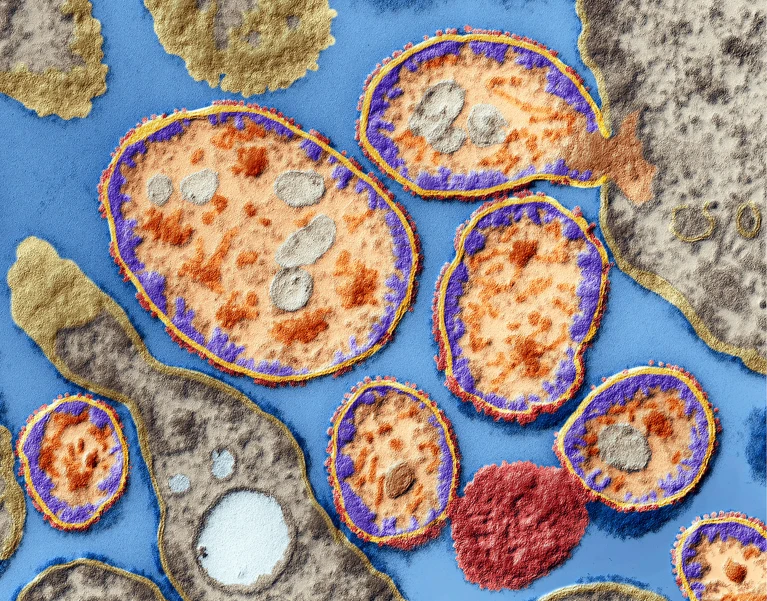In a groundbreaking case of self-experimentation, virologist Beata Halassy treated her stage 3 breast cancer by injecting lab-grown viruses directly into her tumor. The treatment, known as oncolytic virotherapy (OVT), helped shrink her tumor and ultimately led to a successful surgical removal. Halassy has been cancer-free for four years.
What Is Oncolytic Virotherapy?
Oncolytic virotherapy uses viruses to attack cancer cells and trigger the immune system to fight the disease. Although OVT is still experimental, one agent, T-VEC, has been approved in the U.S. for treating metastatic melanoma. However, there are no approved OVT treatments for breast cancer.
Halassy’s Bold Experiment
Unable to face another round of chemotherapy, Halassy used her virology expertise to cultivate two viruses—measles and vesicular stomatitis virus (VSV)—to target her tumor. Over two months, she self-administered the viruses with the help of a colleague, under the supervision of her oncologists.

(Credit: Ivanka Popić)
The results were promising: the tumor shrank, softened, and detached from surrounding tissues, making it easier to remove. Post-surgery analysis showed a strong immune response, indicating the treatment worked as intended.
Ethical Concerns
Halassy’s self-experimentation has sparked ethical debates. Critics warn that publishing her success might encourage others to bypass conventional treatments in favor of risky, unproven methods. Legal and medical ethics expert Jacob Sherkow notes that while her actions may be ethical, they should not serve as a model for cancer patients without specialized knowledge.
A New Research Focus
Halassy’s experience has shifted her research priorities. She now investigates OVT’s potential to treat cancer in domestic animals, thanks to new funding. Reflecting on her journey, she believes her case highlights the potential of OVT while emphasizing the importance of ethical considerations in self-experimentation.
Halassy’s story is a testament to the innovative spirit of scientific research, but it also serves as a reminder of the ethical boundaries that should guide such bold experiments.







